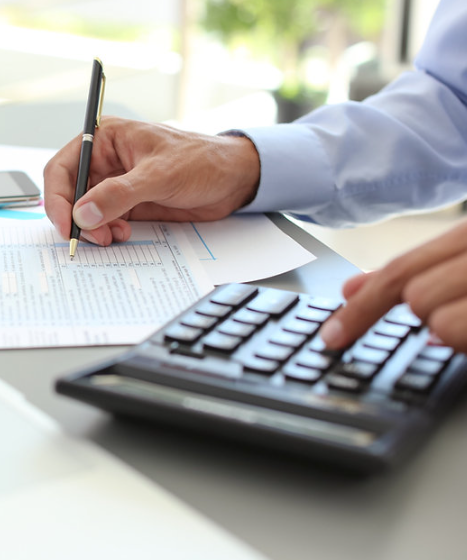With the rise of the gig economy, many individuals are choosing freelancing as a way to balance multiple income streams. If you’re working as a freelancer in the UK, it’s important to understand the taxes you’ll need to pay and how to minimize your tax liability. In this blog post, we’ll cover the essential aspects of freelancing taxes in the UK for the 2024/25 tax year and offer some tips to help you stay on top of your tax responsibilities.
What Is Freelancing in the UK?
Freelancers are self-employed individuals who typically take on short-term contracts or projects for various clients. Unlike business owners with ongoing operations, freelancers may experience fluctuating income depending on the nature of their work. Common freelance jobs include graphic design, writing, photography, and consultancy.
In the UK, around 7.4 million people engage in freelancing either full-time or part-time. While both freelancers and self-employed individuals pay taxes, freelancers generally have less predictable income streams than those who run larger businesses.
Freelancers vs. Self-Employed: What’s the Difference?
Freelancers are a type of self-employed individual, but the scope of their work is typically smaller-scale compared to someone who runs a full-fledged business. Self-employed individuals, including business owners and sole traders, often manage larger operations and may have additional tax responsibilities, such as corporation tax and payroll taxes. Freelancers enjoy a tax advantage if their annual income is below the £1,000 trading allowance, which means they don’t have to register for self-assessment.
However, if a freelancer’s income exceeds this threshold, they must register with HMRC and file annual tax returns, just like any self-employed person.
How Much Tax Do Freelancers Pay in the UK for 2024/25?
Freelancers are subject to income tax and National Insurance Contributions (NICs). For the 2024/25 tax year, the personal allowance is £12,570, meaning the first £12,570 of your income is tax-free. However, if your earnings exceed this amount, you’ll need to pay income tax and NICs.
Freelancers can also benefit from the £1,000 trading allowance, which means if you earn £1,000 or less in freelance income, you don’t need to pay tax on it. If you earn more than £1,000, you can deduct the allowance from your total income before calculating your taxable profits.
Here’s a breakdown of the tax rates for freelancers:
- Income Tax:
- £12,571–£50,270: 20% (basic rate)
- £50,271–£125,140: 40% (higher rate)
- Over £125,140: 45% (additional rate)
- National Insurance Contributions:
- Class 2 NICs: £3.45 per week for profits below £6,725.
- Class 4 NICs:
- 6% on profits between £12,570 and £50,270
- 2% on profits above £50,270
How to Register as a Self-Employed Freelancer in the UK
If you’re a freelancer earning above the £1,000 trading allowance, you’ll need to register as self-employed with HMRC. Here’s a simple guide to get started:
- Create a Government Gateway Account: Visit the HMRC website to set up your account.
- Register for Self-Assessment: Use your Government Gateway account to register for self-assessment.
- Get Your Unique Taxpayer Reference (UTR): HMRC will issue you a 10-digit UTR, which you’ll need for tax-related matters.
- Choose Your Business Structure: Decide whether you’ll operate as a sole trader, partnership, or limited company.
Once registered, you’ll be able to file your annual tax returns through the Self-Assessment system. Make sure to keep accurate records of your income and expenses to avoid issues later.
Allowable Expenses for Freelancers
As a freelancer, you can claim a variety of expenses that are directly related to your work. These deductions can help lower your taxable income and reduce your overall tax liability. Here are some common allowable expenses:
- Business Expenses:
- Office supplies (e.g., stationery, pens, paper)
- Technology costs (e.g., laptops, software, phones)
- Advertising and marketing (e.g., website hosting, social media ads)
- Home Office Costs:
- A portion of household bills (e.g., electricity, internet, rent or mortgage interest)
- Travel and Transportation:
- Vehicle costs (either using simplified mileage rates or actual expenses)
- Public transport for business travel
- Accommodation for business trips
- Professional Development:
- Costs for training, workshops, and educational materials
- Depreciation of Assets:
- Capital allowances for high-value items like computers and machinery
- Other Allowable Expenses:
- Work-related subscriptions
- Protective clothing
- Legal and financial costs (e.g., accountant fees)
VAT Considerations for Freelancers
Freelancers must also be aware of Value Added Tax (VAT) if their turnover exceeds £90,000 per year. If you’re close to this threshold, you may need to register for VAT. VAT-registered freelancers can either follow the standard VAT accounting system or use the flat rate scheme, which simplifies calculations but limits VAT reclaiming.
Simplified Expenses Option
HMRC offers a simplified expenses option for freelancers working from home or using their vehicles for business. This system allows you to claim a flat rate for certain expenses instead of calculating exact costs. For example, you can claim:
- Vehicle Expenses: 45p per mile for the first 10,000 miles, then 25p per mile thereafter.
- Home Office Expenses: £10 per month if you work 25–50 hours per week from home.
Capital Gains Tax for Freelancers
Capital Gains Tax (CGT) applies when you sell or dispose of assets, like equipment or investments, that have increased in value. For the 2024/25 tax year, the annual CGT allowance has been reduced to £3,000. Any gains above this amount are subject to taxation, with the following rates:
- 18% for basic-rate taxpayers
- 24% for higher-rate taxpayers
If you sell residential property that is not your primary residence, you may be liable for higher CGT rates (28% on the portion that exceeds the basic rate band).
Key Tax Deadlines for Freelancers
For freelancers filing taxes for the 2024/25 tax year, keep these important deadlines in mind:
- Self-Assessment Registration: 5 October
- Paper Tax Return Deadline: 31 October
- Online Tax Return Deadline: 31 January
- Tax Bill Payment: 31 January
- Second Payment on Account: 31 July
Freelancers are required to make payments on account twice a year (on 31 January and 31 July), and late filings or payments can incur penalties.
Conclusion
Understanding the taxes freelancers in the UK must pay is essential to staying compliant and minimizing your tax burden. From registering as self-employed to claiming allowable expenses and considering VAT, there are several steps you can take to manage your tax responsibilities. Stay organized, keep accurate records, and ensure that you meet all deadlines to make the most of your freelancing income.



